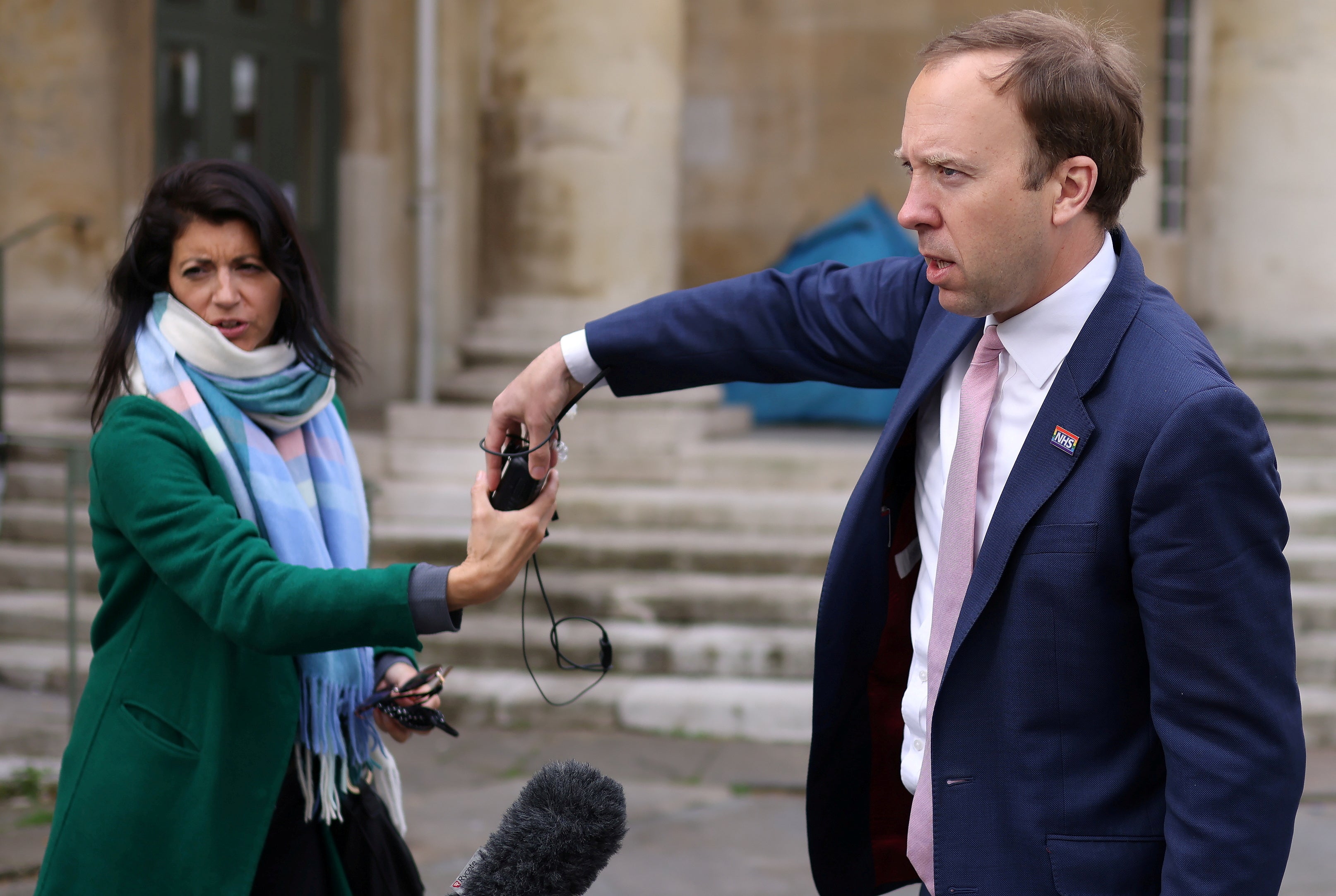The Hancock affair shines a light on the Tories’ unpaid advisers
Members of the boards of government departments can play an important role, says Sean O'Grady, but right now many of them seem a little too close to home


If what’s being called the Hancock scandal might have one last benefit it is the light it shines on the various boards that, supposedly, oversee the work of government departments and seek to challenge ministers. Some, no doubt, provide the kind of insightful advice, perspective and robust criticism that so many ministers really do need.
But when Matt Hancock, health secretary, decided it was a good idea to give Gina Coladangelo a job and a salary as a member (non-exec) of the board of the Department of Health and Social Care, it rather brought the whole idea into question. The government says that all the correct procedures were followed, which makes one wonder exactly how rigorous the appointments process actually was in the case of Coladangelo. It is not immediately clear what experience or expertise Coladangelo brought to bear, leaving aside her past friendship and current infatuation (she is only human, after all) with Hancock. She has now stepped down from the post, and sacrificed the £15,000 in fees for around 15 to 20 days effort – per annum.
These departmental boards and their non-exec contingent are obviously inspired by the boards of large companies. Government departments, some with vast budgets and large staffs, are supposedly comparable.
But many of the non-exec appointments are Brexity, Conservative, or linked to party, sometimes with close links to the very ministers they are supposed to “challenge” (as with Coladangelo), or the old Leave campaigns, and with no direct experience in the work of the relevant arms of the state. There seem to be few, if any, trades unionists, for example, or people from the charity sector, or from research institutions. For the Conservative government, it can look rather too often like jobs for the boys and girls.
Take the board overseeing the work of the Cabinet Office and Michael Gove. The “lead non-exec” is Gisela (now Baroness) Stuart, a former Labour MP who rendered sterling service with Boris Johnson and Gove in the 2016 Vote Leave campaign. She was a health minister for two years under Tony Blair, and sat on the Intelligence and Security Select Committee between 2015 and 2017, was co-chair of Vote Leave and is chair of Wilton Park, an executive agency of the Foreign Office. She is now offering strategic guidance, support and challenge to the work of the department in charge of Brexit.
So is Henry de Zoete, a “tech entrepreneur” and former special adviser to Gove. So, too, is Baroness Finn, formerly Simone Finn, nee Kubes, a former girlfriend of Gove while they were at Oxford. She is a Tory peer and tried to get selected as a Tory candidate for Kensington and Chelsea, and for Mayor of London. She is also now deputy chief of staff in No 10 to the prime minister, and reportedly a “friend of Carrie” Symonds, wife of the prime minister. She was an adviser to the government from 2010 to 2016, and is a consultant. Arguably, she is thus overseeing herself as well as her ex-boyfriend, quite a challenge in itself. She is joined on the board by Lord Hogan-Howe, former Commissioner of the Met. He voted for Brexit, in case you were wondering.
There are others. Douglas Carswell, say, former Tory MP, former Ukip MP, former Leave campaigner and now on the board of the Department for International Trade, and not noted for exporting much beyond his opinions. He sits in oversight of Liz Truss with Dominic Johnson (no relation), who runs Somerset Capital Management, the investment firm he founded with Jacob Rees-Mogg, whose role in securing Brexit is well-appreciated. Johnson is a former Conservative councillor and has donated to some Tory MPs’ campaigns. He also lent David Cameron a townhouse in Chelsea after he lost the Brexit referendum and had to quit. Very decent gesture, in the circs.
Then there’s Nick Timothy, former joint chief of staff to Theresa May and Daily Telegraph columnist, parked at the Department for Education, keeping an eye on Gavin Williamson (who, to be fair, must be no great fan of May or those closely associated with her).
Jonathan Hill, now also a Tory peer, is lead non-exec at the Treasury, and a very experienced lobbyist, Tory special adviser, leader of the Conservatives in the House of Lords, and, a touch of the outsider here, a former European Commissioner for banking. Maybe he wipes the floor once a month with Rishi Sunak, but maybe not.
The role of a non-exec can be a valuable one, in the right hands and with the right remit, just as it can be in any company board. But there does have to be a little more detachment from the full-time politicians running the department and, preferably, a declaration of any romantic interest.



Join our commenting forum
Join thought-provoking conversations, follow other Independent readers and see their replies
Comments